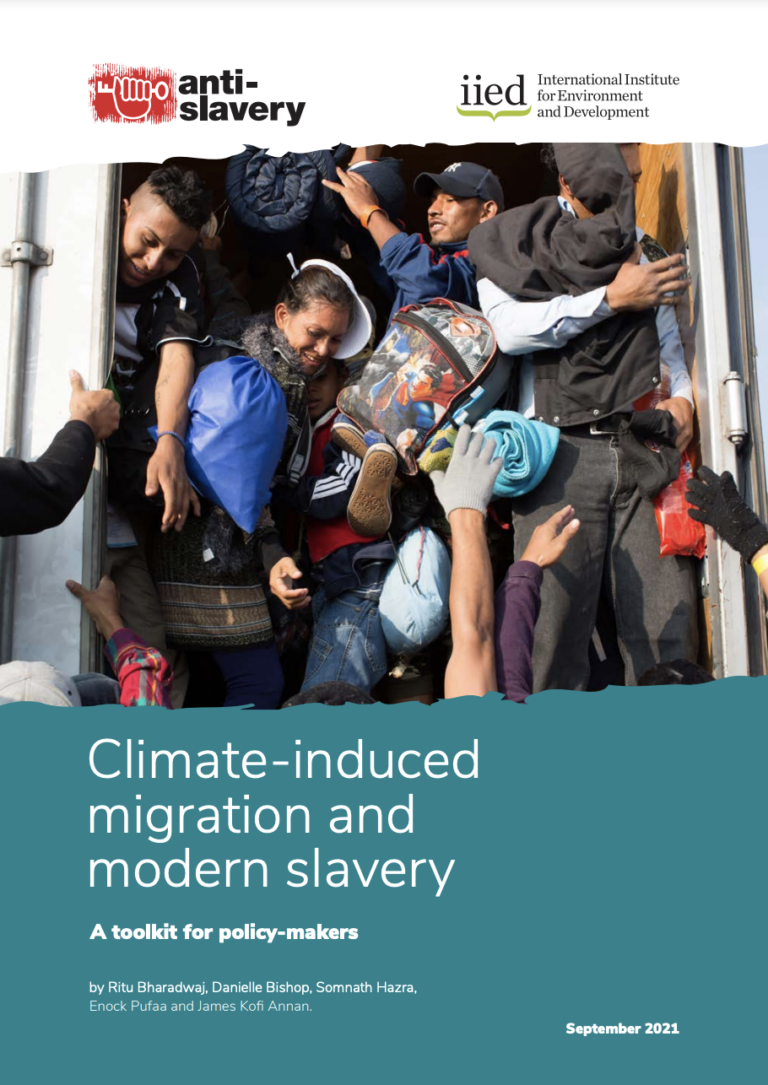Climate change is devastating the planet, leading to intensifying global inequality as well as disputes over land, water, and scarce resources. People are being driven to migrate within and across borders in search of resources and income, making them vulnerable to human trafficking and modern slavery, including forced labour.
This new report from Anti-Slavery International and IIED is among the first to outline the critical link between climate-induced migration and modern slavery.
This groundbreaking report provides important new evidence to inform the UN climate summit (COP26) in November and high-level bodies such as the World Bank and United Nations on the need to address climate change as a factor of modern slavery. This high level panel launch event featured discussion from experts on modern slavery and climate change as well as real life experiences of forced labour.

